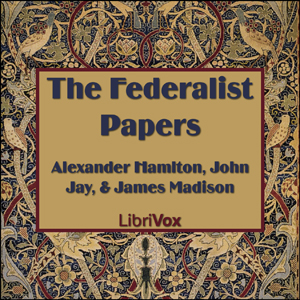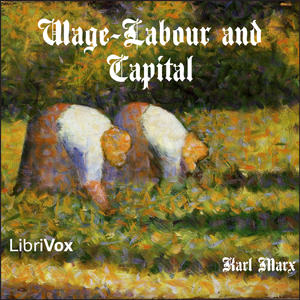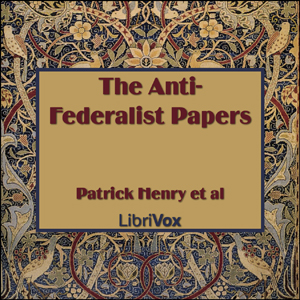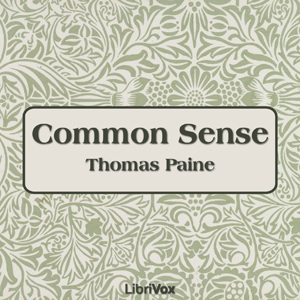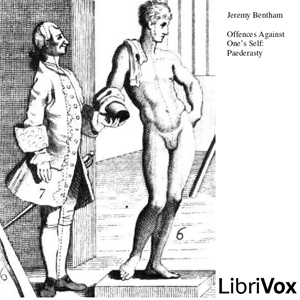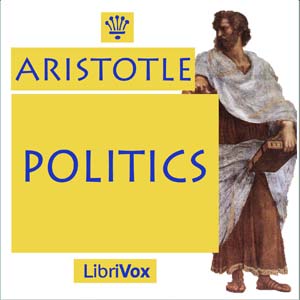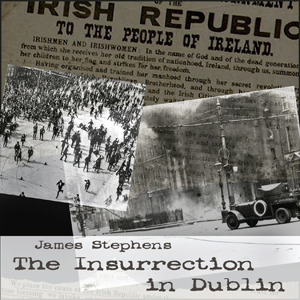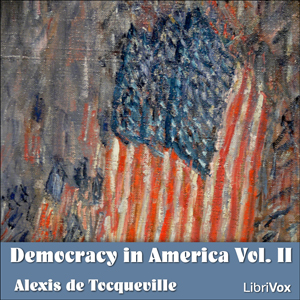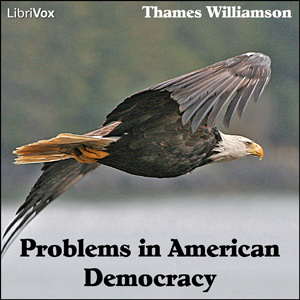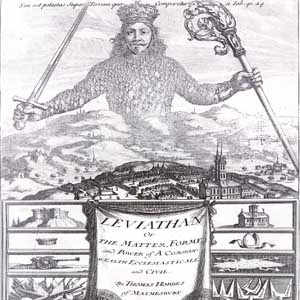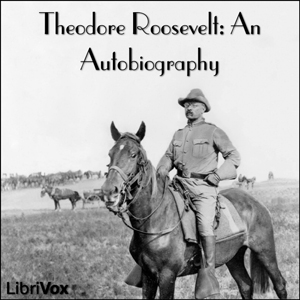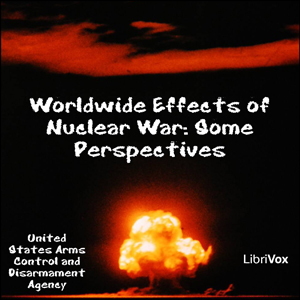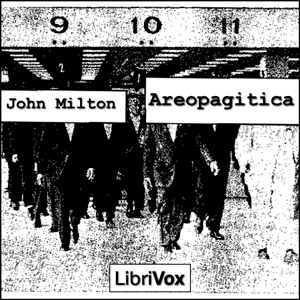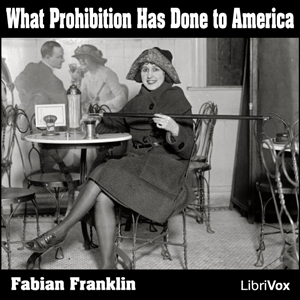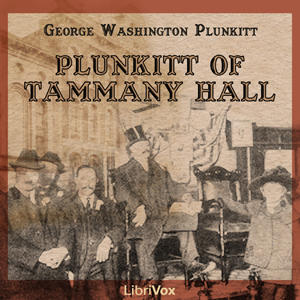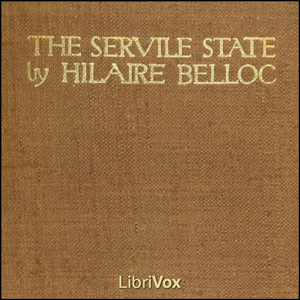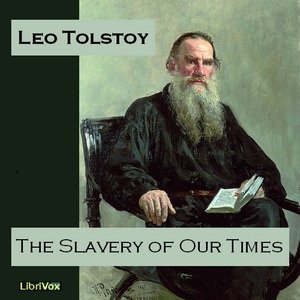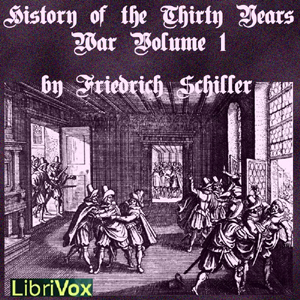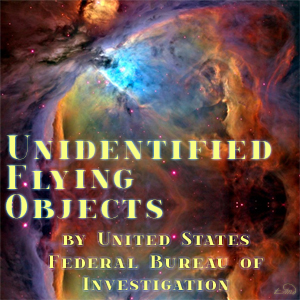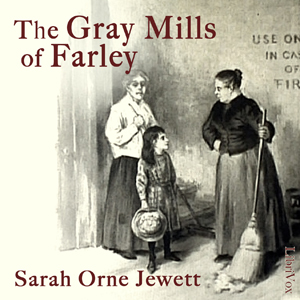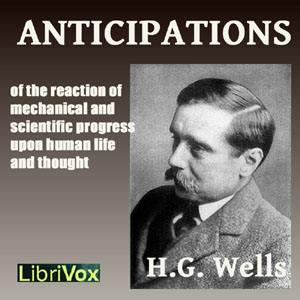The Federalist Papers (correctly known as The Federalist) are a series of 85 articles advocating the ratification of the United States Constitution. Seventy-seven of the essays were published serially in The Independent Journal and The New York Packet between October 1787 and August 1788 . A compilation of these and eight others, called The Federalist, was published in 1788 by J. and A. M’Lean. The Federalist Papers serve as a primary source for interpretation of the Constitution, as they outline the philosophy and motivation of the proposed system of government.The authors of the Federalist Papers wanted to both influence the vote in favor of ratification and shape future interpretations of the Constitution. According to historian Richard Morris, they are an "incomparable exposition of the Constitution, a classic in political science unsurpassed in both breadth and depth by the product of any later American writer." (Summary by Wikipedia)
85 episodes
Orignally written as a series of newspaper articles in 1847, Wage-Labour and Capital was intended to give an overview of Marx’s central threories regarding the economic relationships between workers and capitalists. These theories outlined include the Marxian form of the Labour Theory of Value, which distinguishes “labour” from “labour-power”, and the Theory of Concentration of Capital, which states that capitalism tends towards the creation of monopolies and the disenfranchisement of the middle and working classes. These theories were later elaborated in Volume 1 of Capital, published in 1867. This edition of Wage-Labour and Capital, published in 1891, was edited and translated by Friedrich Engels, and remains one of the most widely read of Marx’s works. (Description by Carl Manchester).
10 episodes
During the period of debate over the ratification of the Constitution, numerous independent local speeches and articles were published all across the country. Initially, many of the articles in opposition were written under pseudonyms, such as "Brutus", "Centinel", and "Federal Farmer". Eventually, famous revolutionary figures such as Patrick Henry came out publicly against the Constitution. They argued that the strong national government proposed by the Federalists was a threat to the rights of individuals and that the President would become a king. They objected to the federal court system created by the proposed constitution. This produced a phenomenal body of political writing; the best and most influential of these articles and speeches were gathered by historians into a collection known as the Anti-Federalist Papers in allusion to the Federalist Papers. (Summary by Ticktockman)
56 episodes
Common Sense, Paine's pro-independence monograph published anonymously on 10 January 1776, spread quickly among literate colonists. Within three months, 120,000 copies are alleged to have been distributed throughout the colonies, which themselves totaled only four million free inhabitants, making it the best-selling work in 18th-century America. Its total sales in both America and Europe reached 500,000 copies. It convinced many colonists, including George Washington and John Adams, to seek redress in political independence from the Kingdom of Great Britain, and argued strongly against any compromise short of independence. (Wikipedia)
7 episodes
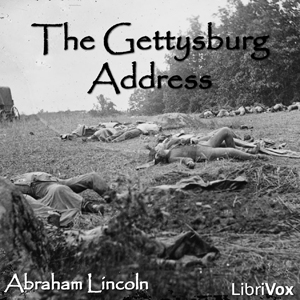
The Dedication of the National Cemetery at Gettysburg, in November, 1863, followed a few short months after the roiling, acrid clouds of gun smoke dissipated, leaving a little crossroads town in Pennsylvania heir to the human tragedy of over 7,000 corpses and 21,000 men suffering wounds. It was a most unnatural disaster.
On November 19, the chief executive made the trip to the still-dazed, shot-torn community to deliver, almost as an afterthought (for he was not the keynote speaker), an address that clarified his belief that the Negro race should be liberated from their slavery, and that despite the loss of so much blood and life, the Union should hold to the goal of completing this emancipation.
That he knew the eyes of the nation would rest of him was evident; this address was the first speech since his inauguration that he prepared in advance. But these carefully crafted words - only 269 of them - became a vital part of our nation's identity, and are a signature to the bedrock of our beliefs.
1 episodes
Jeremy Bentham (1748-1832) was an English jurist, philosopher, and legal and social reformer. He was a political radical and a leading theorist in Anglo-American philosophy of law. He is best known as an early advocate of utilitarianism and animal rights who influenced the development of liberalism. The essay Offences Against One's Self (c. 1785), argued for the liberalisation of laws prohibiting homosexuality. The essay remained unpublished during Bentham's lifetime for fear of offending public morality. It was finally published for the first time in 1931. (Wikipedia) This recording was catalogued on 28th July 2007, the 40th anniversary of the coming into force in the UK of the Sexual Offences Act 1967, which decriminalised male homosexuality for the first time (though with restrictions).
6 episodes
The Gettysburg Address is the most famous speech of U.S. President Abraham Lincoln and one of the most quoted speeches in United States history. It was delivered at the dedication of the Soldiers' National Cemetery in Gettysburg, Pennsylvania, on the afternoon of Thursday, November 19, 1863, during the American Civil War, four and a half months after the Union armies defeated the Confederates at the decisive Battle of Gettysburg. (Summary from Wikipedia)
1 episodes
The Politics, by the ancient Greek philosopher Aristotle, is one of the most influential texts in political philosophy. In it, Aristotle explores the role that the political community should play in developing the virtue of its citizens. One of his central ideas is that "Man is a political animal," meaning that people can only become virtuous by active participation in the political community. Aristotle also criticizes his teacher Plato, classifies and evaluates six different types of constitutions and political institutions, and describes his vision of the ideal state. Aristotle's views on women and slavery are unenlightened by today's standards, but his work remains enduring and relevant to this day. (Summary by Leon Mire)
30 episodes
The “Theses on Feuerbach” are eleven short philosophical notes written by Karl Marx in 1845. They outline a critique of the ideas of Marx’s fellow Young Hegelian philosopher Ludwig Feuerbach. The theses form a basis for the activism emphasised by Marx’s work, and this short text is perhaps best know for its ending - a Eureka for revolutionary socialism. The theses were written in 1845, but not published until 1888 (five years after Marx’s death), with slight modifications by Friedrich Engels. The original text was published in 1924. This translation is based on the 1888 version. (Wikipedia/Carl Manchester)Translated into the public domain by Carl Manchester.
1 episodes
The Easter Rising was a rebellion staged in Ireland in Easter Week, 1916. The Rising was an attempt by militant Irish republicans to win independence from Britain by force of arms. This account was written by Irish novelist James Stephens, who lived and worked in Dublin at the time. (Summary from Wikipedia and iremonger)
4 episodes
Brooks Adams (1848-1927), was an American historian and a critic of capitalism. He believed that commercial civilizations rise and fall in predictable cycles. First, masses of people draw together in large population centers and engage in commercial activities. As their desire for wealth grows, they discard spiritual and creative values. Their greed leads to distrust and dishonesty, and eventually the society crumbles. In The Law of Civilisation and Decay (1895), Adams noted that as new population centers emerged in the west, centers of world trade shifted from Constantinople to Venice to Amsterdam to London. He predicted in America’s Economic Supremacy (1900) that New York would become the centre for world trade. The Theory of Social Revolutions was written in 1913. (Wikipedia)
6 episodes
Democracy in America was published in two volumes, the first in 1835 and the second in 1840. It is a classic work on the United States in the 1830s and its strengths and weaknesses as seen from a European point of view. It is also regarded as a pioneering work of sociology. (Summary based on Wikipedia)
39 episodes
The Bill of Rights are the first ten amendments to the United States Constitution, and were ratified on December 15, 1791.
23 episodes
Problems in American Democracy is a very detailed, specific explanation of some of the underlying and surface problems of a democracy system of government, particularly of the American form of democracy. Though lengthy, it is a great read for people who want to learn more about different types of government and the foundations of our own government in the United States of America. (Summary by Allyson Hester)
40 episodes
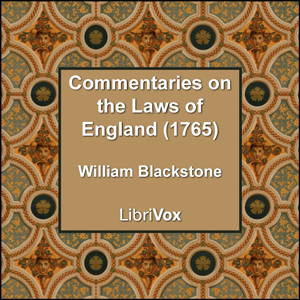
The Commentaries on the Laws of England are an influential 18th century treatise on the common law of England by Sir William Blackstone, originally published by the Clarendon Press at Oxford, 1765-1769.The Commentaries were long regarded as the leading work on the development of English law and played a role in the development of the American legal system. They were in fact the first methodical treatise on the common law suitable for a lay readership since at least the Middle Ages. The common law of England has relied on precedent more than statute and codifications and has been far less amenable than the civil law, developed from the Roman law, to the needs of a treatise. The Commentaries were influential largely because they were in fact readable, and because they met a need. The work is as much an apologia for the legal system of the time as it is an explanation; even when the law was obscure, Blackstone sought to make it seem rational, just, and inevitable that things should be how they were. (Summary from Wikipedia.)
49 episodes

The Age of Reason: Being an Investigation of True and Fabulous Theology, a deistic treatise written by eighteenth-century British radical and American revolutionary Thomas Paine, critiques institutionalized religion and challenges the inerrancy of the Bible. Published in three parts in 1794, 1795, and 1807, it was a bestseller in America, where it caused a short-lived deistic revival. British audiences, however, fearing increased political radicalism as a result of the French revolution, received it with more hostility. The Age of Reason presents common deistic arguments; for example, it highlights the corruption of the Christian Church and criticizes its efforts to acquire political power. Paine advocates reason in the place of revelation, leading him to reject miracles and to view the Bible as an ordinary piece of literature rather than as a divinely-inspired text. Yet, The Age of Reason is not atheistic: it promotes natural religion and argues for a creator-God. (Summary by Wikipedia)
37 episodes
In Books 3 and 4 of Leviathan, Thomas Hobbes elaborates on the political philosophy set forth in the first two books, by considering the nature of a Christian commonwealth. Book 3 begins with a wealth of biblical scholarship, directed at establishing the authority of Scripture while at the same time undermining modern claims to supernatural revelation that would subvert civil law. Hobbes concludes that we cannot be sure of anyone else's divine revelation, and that religious authority is therefore subordinate to civil power. Book 4, titled “Of the Kingdom of Darkness,” sets forth the various ways in which Scripture has been misinterpreted by the church, according to Hobbes, in mixing pagan elements with Christianity.
(Summary adapted from Wikipedia by Leon Mire)
24 episodes
In his vital, illustrative and dynamic autobiography, Theodore Roosevelt let us into the life that formed one of the greatest and outspoken presidents in American history. Not only are we privy to the formation of his political ideals, but also to his love of the frontier and the great outdoors. (Summary from Bartleby.com)
50 episodes
This is a concise yet thorough explanation of what might happen to our world in the aftermath of a nuclear war. The myriad of potential effects will be global and wide-spread. (Summary by Allyson Hester)
3 episodes
9/11 Commission Report, formally titled Final Report of the National Commission on Terrorist Attacks Upon the United States, is the official report of the events leading up to the September 11, 2001 attacks. It was prepared by the National Commission on Terrorist Attacks Upon the United States (informally sometimes known as the "9/11 Commission" or the "Kean/Zelikow Commission") at the request of the President of the United States and Congress.
The commission convened on November 26, 2002 (441 days after the attack) and their final report was issued on July 22, 2004
57 episodes
The Social Contract outlines Rousseau's views on political justice, explaining how a just and legitimate state is to be founded, organized and administered. Rousseau sets forth, in his characteristically brazen and iconoclastic manner, the case for direct democracy, while simultaneously casting every other form of government as illegitimate and tantamount to slavery. Often hailed as a revolutionary document which sparked the French Revolution, The Social Contract serves both to inculcate dissatisfaction with actually-existing governments and to allow its readers to envision and desire a radically different form of political and social organization. (Summary by Eric Jonas)
48 episodes
A prose tract or polemic by John Milton, published November 23, 1644, at the height of the English Civil War... Milton, though a supporter of the Parliament, argued forcefully against the Licensing Order of 1643, noting that such censorship had never been a part of classical Greek and Roman society. The tract is full of biblical and classical references which Milton uses to strengthen his argument. The issue was personal for Milton as he had suffered censorship himself in his efforts to publish several tracts defending divorce (a radical stance at the time and one which met with no favor from the censors)... Areopagitica is among history's most influential and impassioned philosophical defences of the principle of a right to free speech. (Summary by Wikipedia)
7 episodes
In What Prohibition Has Done to America, Fabian Franklin presents a concise but forceful argument against the Eighteenth Amendment of the U.S. Constitution. Beginning in 1920, this Amendment prohibited the sale and manufacture of alcoholic beverages in the United States, until it was repealed in 1933. Franklin contends that the Amendment "is not only a crime against the Constitution of the United States, and not only a crime against the whole spirit of our Federal system, but a crime against the first principles of rational government." Writing only two years after Prohibition began, he correctly predicts many of its disastrous consequences, such as runaway bootlegging and organized crime. The book is both a passionate defense of liberty, and a reminder to Americans of the perils of surrendering it. (Summary by Leon Mire)
11 episodes
The Two Treatises of Civil Government is a work of political philosophy published anonymously in 1689 by John Locke. The First Treatise is an extended attack on Sir Robert Filmer's Patriarcha, which argued for a divinely-ordained, hereditary, absolute monarchy. The more influential Second Treatise outlines a theory of civil society based on natural rights and contract theory. Locke begins by describing the "state of nature," and goes on to explain the hypothetical rise of property and civilization, asserting that the only legitimate governments are those which have the consent of the people.Locke's ideas heavily influenced both the American and French Revolutions. His notions of people's rights and the role of civil government provided strong support for the intellectual movements of both revolutions. (Summary adapted from Wikipedia)
34 episodes
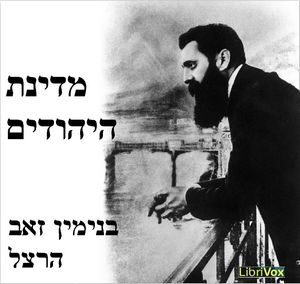
Der Judenstaat (German, The Jewish State) is a book written by Theodor Herzl and published in 1896 in Leipzig and Vienna by M. Breitenstein's Verlags-Buchhandlung. It was originally called "Address to the Rothschilds" referring to the Rothschild family banking dynasty which was very influential in the realization of a Zionist state in Palestine. It is considered to be one of the most important texts of early Zionism. As expressed in this book, Herzl envisioned the founding of a future independent Jewish state during the twentieth century. He argued that the best way of avoiding anti-Semitism in Europe was to create this independent Jewish state. Herzl, who had lived as a secular, largely assimilated Jew, was fluent in neither Hebrew nor Yiddish. His lack of contact with Jewish culture and intellectual currents, and his limited contact with Jews less assimilated than he prior to hitting upon the idea of a Jewish return to Zion, led him to imagine that popular Jewish support for a Jewish State elsewhere than in Israel was conceivable. In Der Judenstaat, Herzl noted the possibility of a Jewish state in Argentina. (Summary by Wikipedia)Translated into Hebrew by Michal Berkovitch.
13 episodes
In this work, Kropotkin points out what he considers to be the fallacies of the economic systems of feudalism and capitalism, and how he believes they create poverty and scarcity while promoting privilege. He goes on to propose a more decentralised economic system based on mutual aid and voluntary cooperation, asserting that the tendencies for this kind of organisation already exist, both in evolution and in human society. (Summary by Wikipedia)
18 episodes
"I seen my opportunities and I took 'em.", George Washington Plunkitt of Tamminy Hall. There's good graft and bad graft according to Plunkitt. Listen to this candid discourse from a 19th century politician, and decide for yourself if things have changed.
(Summary by Mike Vendetti)
24 episodes
Up From Slavery is the 1901 autobiography of Booker T. Washington detailing his slow and steady rise from a slave child during the Civil War, to the difficulties and obstacles he overcame to get an education at the new Hampton University, to his work establishing vocational schools—most notably the Tuskegee Institute in Alabama—to help black people and other disadvantaged minorities learn useful, marketable skills and work to pull themselves, as a race, up by the bootstraps. He reflects on the generosity of both teachers and philanthropists who helped in educating blacks and native Americans. He describes his efforts to instill manners, breeding, health and a feeling of dignity to students. (Summary from Wikipedia)
18 episodes
A clear boundary exists between the servile and the non-servile condition of labour, and the conditions upon either side of that boundary utterly differ one from another, Where there is compulsion applicable by positive law to men of a certain status, such compulsion enforced in the last resort by the powers at the disposal of the State, there is the institution of Slavery ; and if that institution be sufficiently expanded the whole State may be said to repose upon a servile basis, and is a Servile State.
(Hilaire Belloc)
18 episodes
Elizabeth Gurley Flynn was a leading American socialist and feminist. Her book "Sabotage, the conscious withdrawal of the workers' industrial efficiency" was written to explain the utility and legality of sabotage. (Summary by Enko)
16 episodes
Böhm-Bawerk, Mitbegründer der Österreichischen Schule der Nationalökonomie, erörtert, ob ökonomische Gesetze auch für den Staat gelten. (Zusammenfassung von redaer)
Böhm-Bawerk, Macht oder ökonomisches Gesetz? Zeitschrift für Volkswirtschaft, Sozialpolitik und Verwaltung, Bd. XXIII (S.205–271)
7 episodes
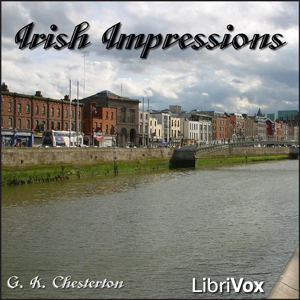
“For the Irish Question has never been discussed in England. Men have discussed Home Rule; but those who advocated it most warmly, and as I think wisely, did not even know what the Irish meant by Home. Men have talked about Unionism; but they have never even dared to propose Union. A Unionist ought to mean a man who is not even conscious of the boundary of the two countries; who can walk across the frontier of fairyland, and not even notice the walking haystack. As a fact, the Unionist always shoots at the haystack; though he never hits it. But the limitation is not limited to Unionists; as I have already said, the English Radicals have been quite as incapable of going to the root of the matter. Half the case for Home Rule was that Ireland could not be trusted to the English Home Rulers. They also, to recur to the parable, have been unable to take the talking cow by the horns; for I need hardly say that the talking cow is an Irish bull. What has been the matter with their Irish politics was simply that they were English politics. They discussed the Irish Question; but they never seriously contemplated the Irish Answer.” (- Gilbert Keith Chesterton)
9 episodes
While claiming to be historical papers on the causes of the United States Civil War, the author indulges in some Slavery Apologetics. An interesting view from a southern lady on what caused the war and why the south was the underdog. (Summary by FNH)
4 episodes
This little book shows, in a short, clear, and systematic manner, how the principle of Non-Resistance, about which Tolstoy has written so much, is related to economic and political life. (Summary by Aylmer Maude, Translator)
18 episodes
Bastiat asserted that the only purpose of government is to defend the right of an individual to life, liberty, and property. From this definition, Bastiat concluded that the law cannot defend life, liberty and property if it promotes socialist policies inherently opposed to these very things. In this way, he says, the law is perverted and turned against the thing it is supposed to defend. (Introduction by Wikipedia)
12 episodes
The History of the Thirty Years War is a five volume work, which followed his very successful History of the Revolt of the Netherlands. Written for a wider audience than Revolt, it is a vivid history, colored by Schiller’s own interest in the question of human freedom and his rationalist optimism. Volume 1 covers the background of the war, through the Battle of Prague in late 1620. (Introduction by Alan Winterrowd)
6 episodes

After the American Civil War, John R. Lynch, who had been a slave in Mississippi, began his political career in 1869 by first becoming Justice of the Peace, and then Mississippi State Representative. He was only 26 when he was elected to the US Congress in 1873. There, he continued to be an activist, introducing many bills and arguing on their behalf. Perhaps his greatest effort was in the long debate supporting the Civil Rights Act of 1875 to ban discrimination in public accommodations.
In 1884 Lynch was the first African American nominated after a moving speech by Theodore Roosevelt to the position of Temporary Chairman of the Republican National Convention in Chicago, Illinois. During the Spanish-American War of 1898, he was appointed Treasury Auditor and then Paymaster under the Republicans. In 1901, he began serving with the Regular Army with tours of duty in the United States, Cuba, and the Philippines.
Lynch retired from the Army in 1911, then married Cora Williams. They moved to Chicago, where he practiced law. He also became involved in real estate. After his death in Chicago 1939 at the age of 92, he was buried with military honors in Arlington National Cemetery. He was entitled to this as a Congressman and veteran.
After the turn of the centutry, Lynch wrote a book, The Facts of Reconstruction, and several articles criticizing the then-dominant Dunning School historiography. Dunning and followers had emphasized the views of former slave owners and routinely downplayed any positive contributions of African Americans during Reconstruction, as well as suggesting they could not manage any political power. Lynch argued that blacks had made substantial contributions during the period. Since he participated directly in Reconstruction-era governments, Lynch's book is considered a primary source in study of the period. (Introduction by Guero and Wikipedia.)
29 episodes

Jane Addams was the first American woman to be awarded the Nobel Peace Prize. In a long, complex career, she was a pioneer settlement worker and founder of Hull-House in Chicago, public philosopher (the first American woman in that role), author, and leader in woman suffrage and world peace. She was the most prominent woman of the Progressive Era and helped turn the nation to issues of concern to mothers, such as the needs of children, public health and world peace. She emphasized that women have a special responsibility to clean up their communities and make them better places to live, arguing they needed the vote to be effective. Addams became a role model for middle-class women who volunteered to uplift their communities. This recording of her memoir Twenty Years at Hull-House commemorates the 100th anniversary of its publication, the 150th anniversary of Addams' birth, and was released on December 10th, the anniversary of Addams receiving her Nobel Prize. (Summary by Wikipedia and Elizabeth Klett)
19 episodes
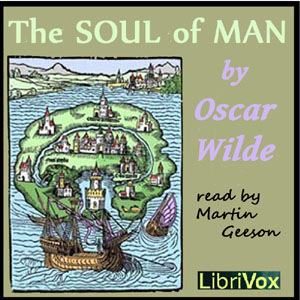
“(T)he past is what man should not have been. The present is what man ought not to be. The future is what artists are.”
Published originally as “The Soul of Man Under Socialism,” this is not so much a work of sober political analysis; rather it can be summed up as a rhapsodic manifesto on behalf of the Individual. Socialism having deployed technology to liberate the whole of humanity from soul-destroying labour, the State obligingly withers away to allow the free development of a joyful, anarchic hedonism...
“Is this Utopian? A map of the world that does not include Utopia is not worth even glancing at, for it leaves out the one country at which Humanity is always landing.”
Far from abandoning the epigram in favour of the slogan, Wilde wittily assails several of his favourite targets: the misguided purveyors of philanthropy; life-denying ascetics of various kinds; the army of the half-educated who constitute themselves the enemies of Art - and those venal popular journalists who cater to them...
“Behind the barricade there may be much that is noble and heroic. But what is there behind the leading-article but prejudice, stupidity, cant, and twaddle?” (Introduction by Martin Geeson)
6 episodes
Constitución vigente en España actualmente, fruto de la Transición a la democracia tras la muerte de Francisco Franco. (Introducción por AGV)
9 episodes
Philip Dru: Administrator: a Story of Tomorrow, 1920-1935 is a futuristic political novel published anonymously in 1912 by Edward Mandell House, an American diplomat, politician and presidential foreign policy advisor. His book's hero leads the democratic western U.S. in a civil war against the plutocratic East, and becomes the dictator of America. Dru as dictator imposes a series of reforms that resemble the Bull Moose platform of 1912 and then vanishes. (Summary by wikipedia)This project was proof listened by Barry Eads and TriciaG.
53 episodes
Through the U.S. Freedom of Information Act (FOIA) this series of communications has been de-classified and made public. Most names have been omitted, however much information of the sightings of UFOs in 1947 can be gleaned from these communications which were primarily between the FBI and other U.S. Government and military organizations.
It should be noted that the U.S. Air Force only became a separate entity in 1947, having split from the U.S. Army at that time. And they became very busy times for the fledgling military organization. The slant of this de-classified material is chiefly written communications between the FBI and the military machine in 1947. Correspondence herein spans July and August of 1947 which will forever remain as the beginning of serious first-hand UFO experience in the annals of history. (Introduction by Roger Melin)
6 episodes
Maria W. Stewart was America's first black woman political writer. Between 1831 and 1833, she gave four speeches on the topics of slavery and women's rights. Meditations From The Pen of Mrs. Maria W. Stewart—published in 1879, shortly before her death—is a collection of those speeches as well as her memoir, some meditations and prayers. They are political, poetical and sermon all at the same time; but in the mileu in which she lectured, they were a critically important part of the abolitionist movement years before the contributions of others such as Frederick Douglass and Sojourner Truth. Her speeches and essays espoused a return to Christian values and morality, but also proposed fundamental changes in gender roles in the midst of tremendous public opposition to the rights of blacks and of women. (Introduction by James K. White)
15 episodes
As Russia goes to war against Japan, Tolstoy urges those at all levels of society, from the Tsar down to the common soldier, to consider their actions in the light of Christ's teaching. "However strange this may appear, the most effective and certain deliverance of men from all the calamities which they inflict upon themselves and from the most dreadful of all—war—is attainable, not by any external general measures, but merely by that simple appeal to the consciousness of each separate man which, nineteen hundred years ago, was proposed by Jesus—that every man bethink himself, and ask himself, who is he, why he lives, and what he should and should not do." (Introduction by David Barnes, and extract from Chapter VI)
12 episodes

“Society lies under the spell of ancient terrorism and coagulated errors. Science is either wilfully hypocritical or radically misinformed.”
John Addington Symonds struck many an heroic note in this courageous (albeit anonymously circulated) essay. He is a worthy Virgil guiding the reader through the Inferno of suffering which emerging medico-legal definitions of the sexually deviant were prepared to inflict on his century and on the one which followed. Symonds pleads for sane human values in a world of Urnings, Dionings, Urano-Dionings and Uraniasters - in short, the whole paraphernalia of Victorian taxonomies and undigested Darwinism which, superimposed on the “terrorism” of religion, labelled and to some extent created the specimen “homosexual.”
A discussion of the “manly love” poems of Walt Whitman leads the author to speculate on a better future for the criminalised mutual passions of men; yet he is obliged to defer the dream, for “the world cannot be invited to entertain it.” (Introduction by Martin Geeson)
22 episodes
The main idea of "Socialism: Utopian and Scientific" (1880) was distinguishing scientific socialism and utopian socialism. Engels begins by chronicaling the thought of utopian socialists, starting with Saint-Simon. He then proceeds to Fourier and Robert Owen. In chapter two, he summarizes dialectics, and then chronicles the thought from the ancient Greeks to Hegel. Chapter three summarizes dialectics in relation to economic and social struggles, essentially echoing the words of Marx.
(Introduction by Wikipedia)
4 episodes
Public Opinion (1922), by Walter Lippman, is a critical assessment of functional democratic government, especially the irrational, and often self-serving, social perceptions that influence individual behavior, and prevent optimal societal cohesion. (Introduction by author)
28 episodes
Read in English, this is a pivotal document in the history of Zionism and the State of Israel. Herzl designed this work to elevate the discussion of "the Jewish Question" so it would "no longer take the form of violent abuse or sentimental vindication but of a debate, practical, large, earnest, and political." While few of Herzl's proposals were actually carried out, the importance of A JEWISH STATE was in the groundswell of support for a Jewish homeland engendered by its solutions to the practical problems of establishing a new state. In the words of a contemporary, "[Herzl] made it seem possible." Benjamin Ze’ev Herzl (1860-1904) was a Hungarian writer, political economist, and Jewish activist. (Summary by Adrian Praetzellis)
10 episodes
As contemporary today as it was over a century ago, this relatively unsentimental tale of labor relations still packs a punch. (Summary by BellonaTimes)
6 episodes
Wells considered this book one of his most important, a natural follow-up to such works as his Man of the Year Million and The Time Machine. His goal was to get people to think and act in new ways. The book starts with a look at how humans get along socially and how they carry out their business ventures. It then discusses how these elements influence others, such as politics, the world of work, and education. H. G. tried to make clear how the current social order was disintegrating without preparing another to take its place. He then traced the roots of democracy, which in its present state he saw as unworkable. Instead, he proposed a new republic. He also critiqued modern warfare. (Summary by Bill Boerst)
18 episodes
